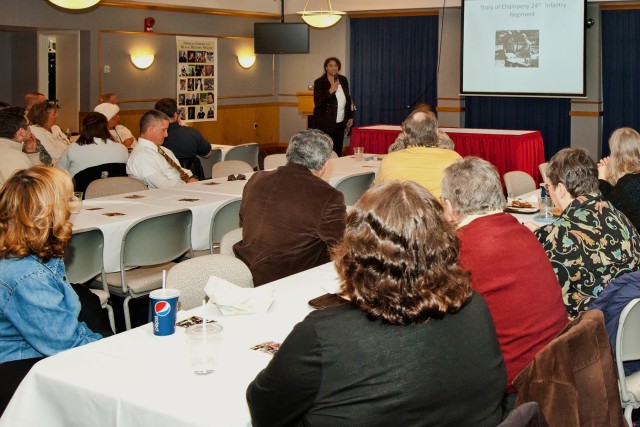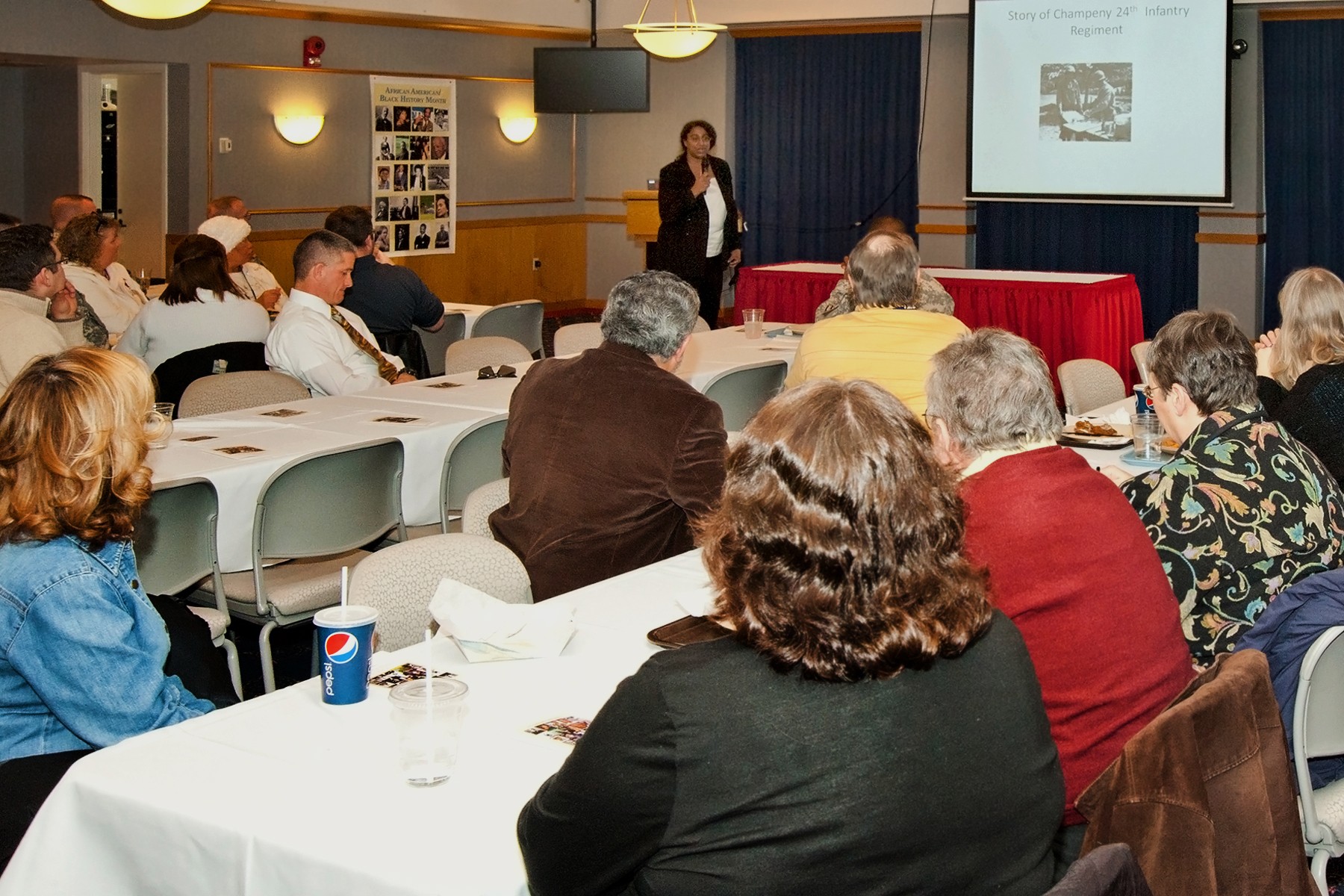FORT McCOY, Wis. - Black Soldiers' contributions to the nation don't end on the battlefield, but continue in their communities when they return to civilian life, said the guest speaker at Fort McCoy's Feb. 3 Black History Month observance.
Dr. Selika Ducksworth-Lawton, an associate professor of history at the University of Wisconsin (UW)-Eau Claire, received her doctorate's degree in African American and Military History from Ohio University. Her UW-Eau Claire students learn about World War II history, in part because of informational support from the Fort McCoy History Center, she said.
Originally from Louisiana, Ducksworth-Lawton came to Wisconsin via Ohio.
"For my community, the military always has been a massively positive influence," she said. "Especially the impact of the leadership training and how the effectiveness training in the military has led a number of Soldiers to come back out into civilian life and positively impact society."
Ducksworth-Lawton used her research knowledge to illustrate to the audience how Black veterans - indeed all veterans - impact their communities after their military service is complete.
Military service traditionally has been a stepping stone for U.S. citizens to gain passage to the middle class. Ducksworth-Lawton said Soldiers bring back their military experience, such as leadership skills and knowledge, to become leaders in their communities.
Following the Civil War, for example, Black veterans joined militias and became part of the middle class. They used the money they earned from military service to buy land, in effect, becoming long-term landowners in the South, she said.
"Buffalo Soldiers who served in the military became more than just Indian fighters," she said. "They learned skills, such as diplomacy A,Amediating between the settlers and the Indians - sometimes even among the settlers themselves. They learned how to advance and how to respond to racial situations."
Many Soldiers, including her father-in-law, a Korean War bronze-star recipient, used military service to extend their reading and writing skills or improve their education - up through about 1963 - and advanced these skills in their communities, she said. When white citizens wouldn't support educational systems for minorities, they raised money to build schools themselves.
Even today, Ducksworth-Lawton said she can see the effect of the military on the student body at UW-Eau Claire. One in four students has financial aid from the military, such as National Guard or Army Reserve service. Of the 70 Black students, about half of them come from a military Family.
"Studies show that veterans have a higher rate of education," she said. "Their children also are more likely to attend college, as they see the dedication their parents had."
Blacks who served during Korea and World War II often were in the forefront of the Civil Rights movement of the 1960s, Ducksworth-Lawton said. All of the deacons for Dr. Martin Luther King Jr. were enlisted Korean War veterans, led by a master sergeant.
Black veterans also battled the Ku Klux Klan to keep Civil Rights workers safe and advance their interests.
For more information about ethnic observances in the Fort McCoy community, call the Equal Opportunity adviser 608-388-3246.


Social Sharing